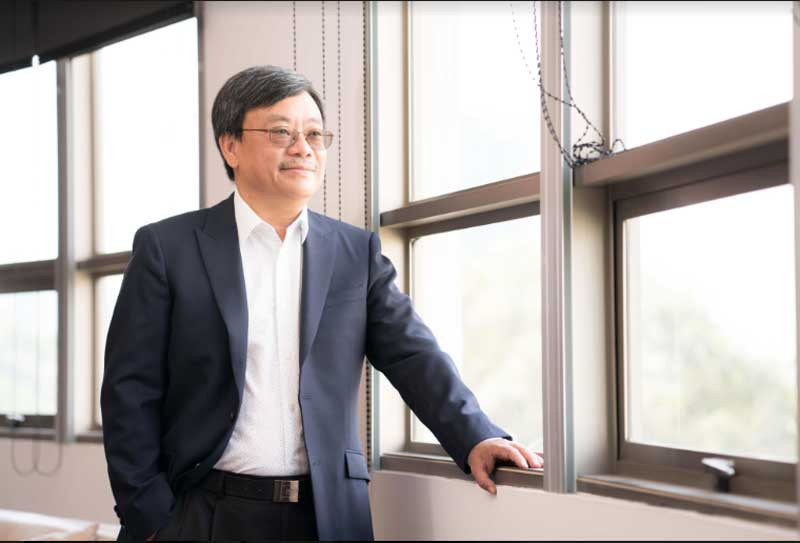
According to Forbes, as of February 23, Quang had stock assets of $1 billion. Prior to that, he officially returned to Forbes’ list of billionaires in early 2024.
After a year of pressure in 2023, many shares, including Masan’s (MSN), have seen prices bounce back. Since November 2023, MSN price has increased from VND58,000 per share to VND67,000-69,000 (19 percent).
The increase in MSN prices helped the capitalization value of the consumer goods & retail group to VND96 trillion by the end of February 23 ($3.9 billion)
Reports show that Quang is directly holding only 15 MSN, but the ‘big boss’ from Quang Tri is indirectly holding a large amount of MSN through Masan JSC and Hoa Huong Duong, equal to 45 percent of Masan’s capital.
He is also holding 9.4 million Techcombank shares (TCB), the joint stock bank where Ho Hung Anh, another billionaire, is president.
Quang’s wife – Nguyen Hoang Yen – holds 42 million MSN shares. Also, he is directly holding Masan Consumer (MCH) and Tam Nhin Masan.
Quang was added to Forbes’ list of billionaires for the first time in 2018 with assets hovering around $1-1.9 billion.
MSN prices witnessed sharp falls from VND88,000 per share to VND58,000 in August-October 2023, and then made an impressive recovery. But it still could not regain the VND70,000 per share threshold.
However, MSN is believed to make a breakthrough in the time to come. Some large corporations predicted that MSN price may hit VND180,000 per share thanks to the firm foundation of the consumer goods and retail ‘empire’, as well as the ‘machine’ that provides materials to make high-performance batteries in the future.
The predicted good performance of Masan will help Quang made great strides in upcoming years.
The report released by New World Health and Henley & Partners shows that the growth rate of accumulated assets of Vietnamese will be the highest in the world in the next decade, up to 125 percent. If this happens, this will be an asset growth rate higher than any other country, in terms of GDP per capita and number of dollar millionaires.
Masan, together with other large corporations, including Vingroup, Hoa Phat and commercial banks, is expected to become an incubator of Vietnamese dollar billionaires.
Born in 1963 in Quang Tri, obtaining a doctorate in nuclear physics from Belarus Academy of Science, Quang started a business in Russia in the 1990s by selling instant noodles. Later, he invested in soybeans, fish and chili sauce. He returned to Vietnam in 2002 and developed consumer goods, from soy sauce, fish sauce, instant noodles, sausage and coffee.
Masan is one of the largest consumer goods manufacturers and retailers, especially after it took over VinMart retail chain owned by Vuong and renamed the chain Winmart.
Quang is the person who spent billions of dollars to continue implementing Vuong’s dream of developing Vietnamese-owned retail chains amid the belief that the Vietnamese retail chain would be dominated by foreign companies.
Many foreign retailers have joined the Vietnamese retail market, including Japanese Aeon and Thai GO. However, Winmart still can restructure itself and grow strongly. It is the channel which helps popularize Vietnamese goods, including Masan-made products.
Masan reported the positive growth rate in net revenue in 2023 (VND78.3 trillion) despite the domestic demand decrease. Its consumer goods manufacturing continued its steady rise, while retail service is believed to bring high profits in mid-term.
WinCommerce (WCM) has nearly reached the EBIT (Earnings before interest, taxes) breakeven point. This marks an important milestone on the path towards the post-tax profit breakeven point of the entire network in 2024.
Masan, with its steady production and business, has produced a number of wealthy people, namely Nguyen Dang Quang ($1 billion), Nguyen Thi Thanh Thuy (VND7.25 trillion), Nguyen Hoang Yen (VND2.9 trillion) and Nguyen Thieu Quang (VND1.4 trillion).
A high number of large foreign corporations and investment funds have poured money into Vietnamese companies in the fields of consumer goods, retail, medicine and finance.
Bain Capital, which is managing $180 billion worth of assets, has invested at least $200 million in Masan Group.
Manh Ha